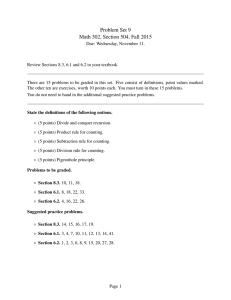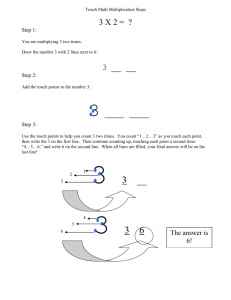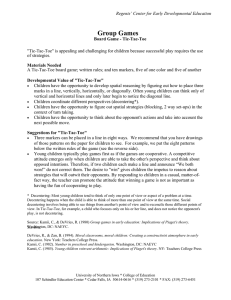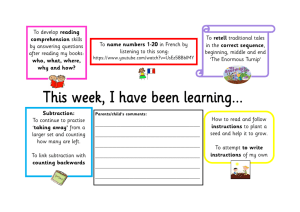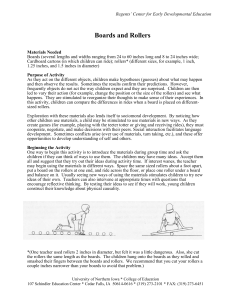Group Game Barnyard Scramble Regents’ Center for Early Developmental Education
advertisement
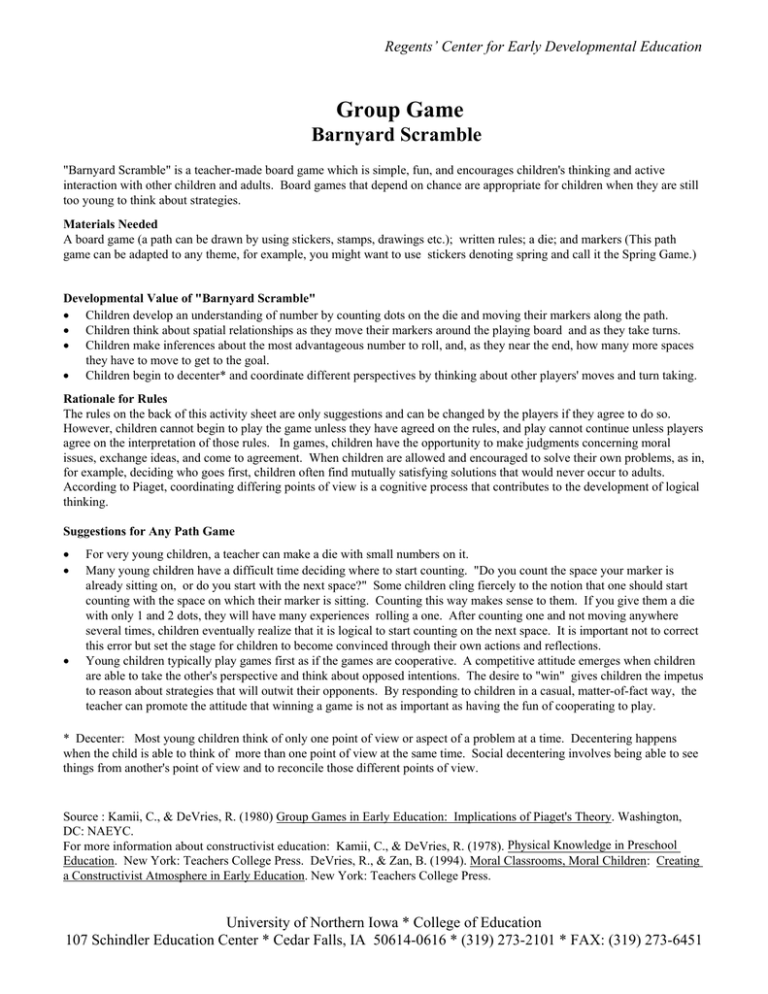
Regents’ Center for Early Developmental Education Group Game Barnyard Scramble "Barnyard Scramble" is a teacher-made board game which is simple, fun, and encourages children's thinking and active interaction with other children and adults. Board games that depend on chance are appropriate for children when they are still too young to think about strategies. Materials Needed A board game (a path can be drawn by using stickers, stamps, drawings etc.); written rules; a die; and markers (This path game can be adapted to any theme, for example, you might want to use stickers denoting spring and call it the Spring Game.) Developmental Value of "Barnyard Scramble" • Children develop an understanding of number by counting dots on the die and moving their markers along the path. • Children think about spatial relationships as they move their markers around the playing board and as they take turns. • Children make inferences about the most advantageous number to roll, and, as they near the end, how many more spaces they have to move to get to the goal. • Children begin to decenter* and coordinate different perspectives by thinking about other players' moves and turn taking. Rationale for Rules The rules on the back of this activity sheet are only suggestions and can be changed by the players if they agree to do so. However, children cannot begin to play the game unless they have agreed on the rules, and play cannot continue unless players agree on the interpretation of those rules. In games, children have the opportunity to make judgments concerning moral issues, exchange ideas, and come to agreement. When children are allowed and encouraged to solve their own problems, as in, for example, deciding who goes first, children often find mutually satisfying solutions that would never occur to adults. According to Piaget, coordinating differing points of view is a cognitive process that contributes to the development of logical thinking. Suggestions for Any Path Game • • • For very young children, a teacher can make a die with small numbers on it. Many young children have a difficult time deciding where to start counting. "Do you count the space your marker is already sitting on, or do you start with the next space?" Some children cling fiercely to the notion that one should start counting with the space on which their marker is sitting. Counting this way makes sense to them. If you give them a die with only 1 and 2 dots, they will have many experiences rolling a one. After counting one and not moving anywhere several times, children eventually realize that it is logical to start counting on the next space. It is important not to correct this error but set the stage for children to become convinced through their own actions and reflections. Young children typically play games first as if the games are cooperative. A competitive attitude emerges when children are able to take the other's perspective and think about opposed intentions. The desire to "win" gives children the impetus to reason about strategies that will outwit their opponents. By responding to children in a casual, matter-of-fact way, the teacher can promote the attitude that winning a game is not as important as having the fun of cooperating to play. * Decenter: Most young children think of only one point of view or aspect of a problem at a time. Decentering happens when the child is able to think of more than one point of view at the same time. Social decentering involves being able to see things from another's point of view and to reconcile those different points of view. Source : Kamii, C., & DeVries, R. (1980) Group Games in Early Education: Implications of Piaget's Theory. Washington, DC: NAEYC. For more information about constructivist education: Kamii, C., & DeVries, R. (1978). Physical Knowledge in Preschool Education. New York: Teachers College Press. DeVries, R., & Zan, B. (1994). Moral Classrooms, Moral Children: Creating a Constructivist Atmosphere in Early Education. New York: Teachers College Press. University of Northern Iowa * College of Education 107 Schindler Education Center * Cedar Falls, IA 50614-0616 * (319) 273-2101 * FAX: (319) 273-6451
